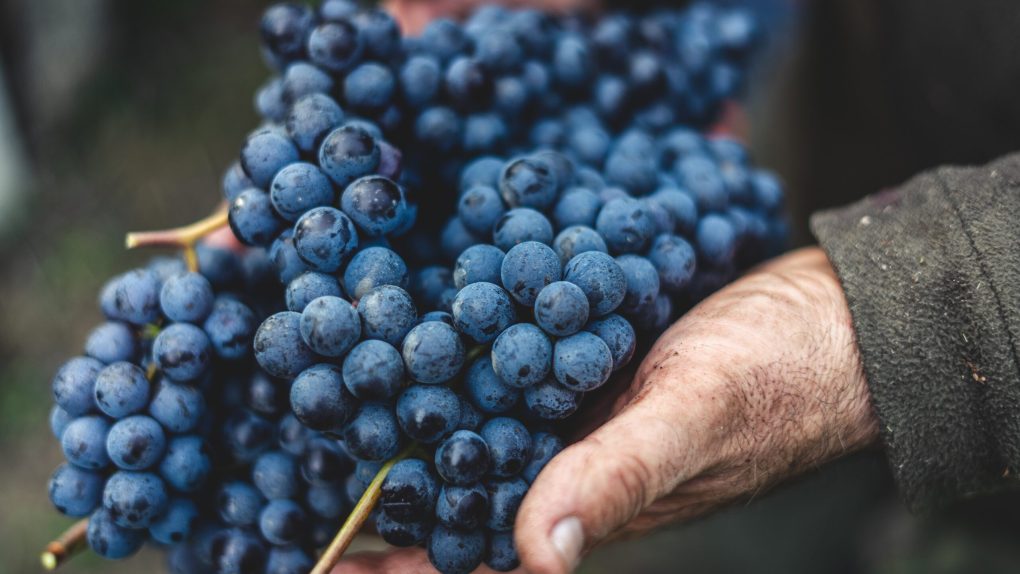Let’s start with the basics. What is natural wine?
Natural wine refers to a generalized movement among winemakers for production of wine using simple or traditional methods. Although there is no uniform definition of natural wine, it is usually produced without the use of pesticides or herbicides and with few or no additives.
Typically, natural wine is produced on a small scale using traditional rather than industrial techniques and fermented with native yeast. In its purest form, natural wine is simply unadulterated fermented grape juice with no additives in the winemaking process.
01
How is it different from conventional wine?
Generally speaking, there’s a noticeable difference in the appearance, aromas, and flavours of natural wines versus conventional refined wines. Cloudy looks and funky flavours are how many consumers think about and classify natural wines. Their cloudy appearances result from the absence of fining agents or filtering out impurities after fermentation. Meanwhile, “funky,” “sour,” and “barnyard” descriptors often attributed to the style come from the use of native yeasts and lack of preservatives.
We make a version of each wine in each varietal, so you can experience the difference of the two with Drury Lane up close and personal.
02
Is it the same as sustainable, organic, or biodynamic wine?
No. These are more like classifications of natural wine rather than synonyms for it. While they have many similarities and overlaps, there are also important distinctions.
Organic certified wines boast that it does NOT at any point during the winemaking process contain synthetic fertilizers, pesticides, and other chemicals. When grapes begin growing in the vineyard, these agents are absent. As grapes are grown, harvested, and made into wine, any additives are also organically grown, free of any genetically modified organisms (GMOs) and sulfites, preservatives with antioxidants and antibacterial properties.
Like organic wines, biodynamic wines contain no chemicals and additives throughout the winemaking process. As grapes grow, they are free of any synthetic fertilizers, pesticides, and chemicals. When grapes are harvested and made into wine, they too are free of any GMOs and sulfites. Biodynamic wines differ from organic wines in that they take the entire ecosystem into consideration as grapes are grown. To be certified under either of the two biodynamic wine certifications vineyards must maintain exceptional soil health and vintners must time their planting schedules with lunar cycles to ensure the best agricultural health.
Sustainable wines aim to have a winemaking process that protects the environment, supports social responsibility, maintains economic feasibility, and produces high quality wines. As grapes are grown, harvested, and made into wine, a multitude of environmental factors are prioritized. This includes everything from maintaining biodiversity on vineyards to ensure soil health, to implementing recycling measures that conserve water as grapes are growing, to utilizing renewable energy technology like solar, as wine is being produced.
It’s possible for one natural wine to have all three classifications. Or it could have just one. Drury Lane Estate’s natural wines for example are sustainable wines, but are neither organic nor biodynamic.
03
Does it contain sulfites?
All wine contains sulfites. The chemical compound is a natural byproduct of fermentation. Some winemakers add extra sulfites to their wines to keep them fresher for longer. Some other winemakers add tiny quantities (up to 30 milligrams per liter) to help keep their wine stable after bottling. Others, however, are adamantly opposed to adding them. The extra sulfites are a point of contention in the natural wine world.
04
What do they taste like?
Since natural wines are unregulated, taste varies dramatically. Generally speaking, natural wines are funkier, gamier, have yeastier characteristics, a cloudy appearance and often times have sediment floating around in the bottom of the bottle. A lot of the time their aroma is going to be far more yeasty than fruity, but of course because there are no standards – you may also find yourself with a clean and fruity natural wine as well. There are literally no rules with natural wine!
05
Are they better for you?
It’s debatable. Since natural wine is free of synthetic chemical compounds and it’s lower in sugar, sulfites and often total alcohol by volume, natural wine has potentially lower side effects when compared to conventional wine. Natural wines are unfiltered and unrefined, meaning they may contain impurities and native yeasts.
Naturally-Minded: The Gang Of Four
Most sources claim that the natural winemaking movement started with winemakers in the Beaujolais region of France in the 1960s. Several winemakers, namely Marcel Lapierre, Jean Foillard, Charly Thevenet, and Guy Breton, sought a return to the way their grandparents made wine, before the incursion of pesticides and synthetic chemicals that had become so prevalent in agriculture after the end of World War II. They became affectionately known as The Gang of Four.
They were heavily influenced by the teachings and thoughts of Jules Chauvet and Jacques Neauport, two oenologists who studied ways to make wines with fewer additives. For quite some time the town of Villié-Morgon became a place for like minded winemakers to congregate and become influenced by the Gang of Four.
Gradually this movement spread to other regions of France, and since has spread across the world, gradually gaining in popularity and attracting newer younger winemakers in more and more regions of the world including The Hunter Valley.



